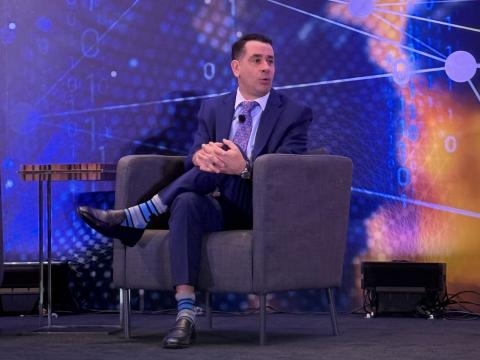U.S. Army To Release Research Data from Major Study
U.S. Army officials revealed that observations discovered through Project Athena are set to be unveiled in April 2025.
Leaders expect the study and its findings will lead to positive changes within Army operations, according to Leonel Garciga, chief information officer, U.S. Army, and Jennifer Swanson, deputy assistant secretary of the Army for data, engineering and software.
Through Project Athena, crews are inspecting the artificial intelligence (AI)/large language model (LLM) tools that they currently use to discover which tools work, which ones are faulty and which industry capabilities they still need to tackle. Conducting this type of examination allows the Army to note the technologies they still need to develop to improve operations. A trend Army officials are seeing is that it also allows private companies to better understand their role and what voids they can fill, according to Swanson and Garciga.
“I’m really excited about the outcomes that we’re going to get, which, just to be clear, what we’re not going to do is come out of this and pick one single tool and say this is it for the Army,” Swanson said. “What we are doing is assessing the tools that we have. There are other tools, but assessing the tools that we have and coming up with a list of ‘you know, this tool is great at these things, maybe not so great at these things, here are some pros and cons.’”
“That’s going to give us some flexibility to have a better way to talk to our industry partners that are delivering those platforms,” Garciga said. “Hey, these are the types of LLM things that we need available to these capabilities, and it should help us in partnership with them to drive some industry capability.”
Additionally, Army officials are finding ways to better control the financial side of things when it comes to new projects. Crews were able to implement a digital safety railing that they think will help keep costs down and on schedule. Furthermore, the Army can use the guardrail to track a project’s progress more easily while also ensuring they are using their allotted funds responsibly. Ideally, the digital safety railing will prevent some uncomfortable conversations down the road, but it is a challenging process, per Garciga.
“If it’s quarter one and you’ve spent 50% of your budget in cloud already, then we have to have a conversation, so we have a lot of those brakes already in place,” Garciga said. “I think the larger challenge is going to be, between all the different models, whether cloud providers or individual companies or commercial off-the-shelf software coming to the table to access these capabilities, us making sure that we can get some guidance across all those different models, so we can put some of those guardrails in place.”
That "hypothetical" example has already taken place. One business moved 50% of their allotted budget in just eight hours, and Project Athena will hopefully stop this from happening again, Garciga said.
“There’s kind of this fallacy out there that, ‘Hey, we’re going to go do a big acquisition after this,’” Garciga mentioned at AFCEA NOVA Army IT Day 2025. “That’s not the intent. The intent really is, to the best of our ability in this emerging space, to put out some guidance to make sure that we’re helping folks acquire the technology they need in the most responsible way and in the best way to execute it across the Army.
Swanson also emphasized how important it is to be able to control costs in the project environment.
“Cost models are really important,” Swanson stressed. “How we control costs is really important because what we certainly don’t want to end up with is a massive cloud compute bill that we can’t control, and so that’s a big part of what we’re doing.”
Officials anticipate that Army leaders will be looking to award contracts following the release of the study’s findings. Additionally, they are expecting that the Project Athena study will also reveal new methods and procedures that are more effective and efficient, which could very well lead to the creation of new policy. But even Swanson admitted that the amount of change that takes place is dependent on what the team learns over the next couple of months.





Comments